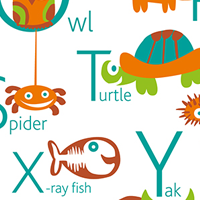Bộ đề thi thử THPT Quốc gia năm 2016 môn Tiếng Anh - Số 10
Đề thi thử THPT Quốc gia 2016 môn Tiếng Anh có đáp án
Bộ đề thi thử THPT Quốc gia năm 2016 môn Tiếng Anh - Số 10 là tài liệu ôn thi THPT Quốc gia cực kỳ hữu ích dành cho các em học sinh ôn tập và củng cố kiến thức để sẵn sàng cho kỳ thi Đại học 2016. Mời các em tải miễn phí bộ đề thi thử THPT Quốc Gia môn tiếng Anh này về và tham khảo, ôn thi và đánh giá năng lực bản thân.
Bộ đề thi thử THPT Quốc gia năm 2016 môn Tiếng Anh - Số 7
Đề thi thử Đại học môn Tiếng Anh 2016 đề số 2
Mark the letter A, B, C, or D on your answer sheet to indicate the word whose underlined part differs from the other three in pronunciation in each of the following questions.
Question 1. A. dry B. sandy C. geography D. society
Question 2. A. medals B. games C. teams D. Events
Mark the letter A, B, C or D on your answer sheet to to indicate the word that differs from the other three in the position of primary stress in each of the following question.
Question 3. A. possible B. observer C. excellent D. difficult
Question 4. A. attraction B. argument C. impression D. importance
Question 5. A. priority B. influence C. discovery D. advantage
Mark the letter A, B, C or D on your answer sheet to indicate the correct answer to each of the following questions.
Question 6. Fiona stayed at work late...........................
A. so as to complete the report B. so that to finish some work
C. because she didn't like working late. D. although she wasn't very tired
Question 7. ...................... he drank, ........................he became.
A. The most / the most violent B. The less / less violent
C. The more / the more violent D. More / more violent
Question 8. Mary will have finished all her work ......................
A. until her boss will return B. as soon as her boss returned
C. by the time her boss returns D. when her boss will return
Question 9. ........................, " you'll probably get poor marks in the final exam.
A. Although your marks on the tests are not very good
B. Because you're making efforts in your studies
C. Unless you pay more attention to your work
D. If you try to work harder
Question 10. My mother suggested .............................
A. being gone to the countryside this weekend B. to go to the countryside this weekend
C. go to the countryside this weekend D. going to the countryside this weekend
Question 11. Tom said that he ......................his motorbike the day before.
A. had lost B. has lost C. lose D. lost
Question 12. ..........he was sick, he still turned up for his guitar lesson.
A. Because B. Although C. If D. Since
Question 13. They spoke .............. for us to understand.
A. too slow B. slowly enough C. slow enough D. So slow
Question 14. It looks like they're going to succeed .......................their present difficulties.
A. although B. despite C. Because of D. but
Question 15. He is disappointed at not being offered the job, but I think he will .................... it.
A. take in B. get away C. take after D. go over
Question 16. The Vietnamese Women's Football team ....................defended the SEA Games Champion title.
A. successfully B. success C. successful D. succeed
Question 17. A: "Would you like me to get it for you?" B: " ......................."
A. I'm glad to B. Me, too C. No problem D. Don't bother
Question 18. "It was very cold yesterday. The winter is just around the corner. "I think today will be ............... yesterday."
A. so cold as B. as cold as C. cold as D. so as cold
Question 19. Anne: "Thanks for the nice gift!" - John: ".........................."
A. I'm glad you like it B. But do you know how much it costs
C. In fact, I myself don't like it D. You're welcome
Question 20. The river ........................we get our water- supply is nearly empty.
A. from which B. where C. which D. that
Question 21. We were really....................with the weather.
A. disappointed B. disappoint C. disappointment D. disappointing
Question 22. I have nearly finished reading the book. There are only a few ................. left.
A. pages B. slices C. sheets D. pieces
Question 23. They were late for work because their car ....................... down.
A. broke B. went C. got D. took
Question 24. I know you feel bad now, Tommy, but try to put it out of your mind. By the time you're an adult, you .............. all about it.
A. will have forgotten B. will forget
C. have forgotten D. forgot
Mark the letter A, B, C or D on your answer sheet to indicate the word(s) CLOSEST in meaning to the underlined word(s) in each of the following questions.
Question25. When being interviewed, you should concentrate on what the interviewer is saying or asking you.
A. be related to B. be interested in C. pay all attention to D. express interest in
Question 26. Those companies were closed due to some seriously financial problems.
A. taken off B. put away C. wiped out D. gone over
Question 27. Champion said she couldn't have won the gold medal with the support of her parents and teacher
A. help B. success C. failure D. supply
Read the following passage and mark the letter A, B, C, or D to choose the word or phrase that best fits each of the blanks.
You will make the interview process easier for the employer if you prepare relevant information about yourself. Think about how you want to present your (28)_____, experiences, education, work style, skills, and goals. Be prepared to supplement all your answers with examples that support the statements you make. It is also a good idea to review your résumé with a critical eye and (29)____ areas that an employer might see as limitations or want further information. Think about how you can answer difficult questions (30)_____ and positively, while keeping each answer brief.
An interview gives the employer a (31)_____ to get to know you. While you do want to market yourself to the employer, answer each question with an honest (32)_____ . Never say anything negative about past experiences, employers, or courses and professors. Always think of something positive about an experience and talk about that. You should also be (33)_____ . If you are genuinely interested (34)_____ the job, let the interviewer know that.
One of the best ways to show you are keen on a job is to demonstrate that you have researched the organization prior to the interview. You can also (35)____ interest by asking questions about the job, the organization, and its services and products. The best way to impress an employer is to ask questions that build upon your interview discussion. This shows you are interested and (36)_____ close attention to the interviewer. It is a good idea to prepare a few questions in advance, but an insightful comment based on your conversation can make an even stronger statement. At the (37)____ of an interview, it is appropriate for you to ask when you may expect to hear from the employer.
Question 28. A. strengths B. practices C. pressures D. promotions
Question 29. A. hide B. express C. identify D. limit
Question 31. A. accurately B. sharply C. rightly D. hardly
Question 32. A. change B. chance C. practice D. way
Question 33. A. expression B. ability C. response D. respect
Question 34. A. enthusiasm B. enthusiast C. enthusiastically D. enthusiastic
Question 20. A. with B. on C. for D. in
Question 21. A. show B. appear C. conceal D. cover
Question 22. A. make B. spend C. pay D. choose
Question 37. A. finish B. close C. final D. end
Read the following passage and mark the letter A, B, C, or D on your answer sheet to indicate the correct answer to each of the following questions.
An air pollutant is defined as a compound added directly or indirectly by humans to the atmosphere in such quantities as to affect humans, animals, vegetation, or materials adversely. Air pollution requires a very flexible definition that permits continuous change. When the first air pollution laws were established in England in the fourteenth century air pollutants were limited to compounds that could be seen or smelled- a far cry from the extensive list of harmful substances known today. As technology has developed and knowledge of the health aspect of various chemicals has increased, the list of air pollutants has lengthened. In the future, even water vapor might be considered an air pollutant under certain conditions.
Many of the more important air pollutants, such as sulfur oxides, carbon monoxide, and nitrogen oxides, are found in nature. As the Earth developed, the concentration of these pollutants was altered by various chemical reactions; they became components in biogeochemical cycles. These serve as an air purification scheme by allowing the compounds to move from the air to the water or soil. On a global basis, nature's output of these compounds dwarfs that resulting from human activities.
However, human production usually occurs in a localized area, such as a city. In such a region, human output may be dominant and may temporarily overload the natural purification scheme of the cycles. The result is an increased concentration of noxious chemicals in the air. The concentrations at which the adverse effects appear will be greater than the concentrations that the pollutants would have in the absence of human activities. The actual concentration need not be large for a substance to be a pollutant; in fact, the numerical value tells us little until we know how much of an increase this represents over the concentration that would occur naturally in the area. For example, sulfur dioxide has detectable health effects at 0.08 parts per million (p.p.m), which is about 400 times its natural level. Carbon monoxide, however, has a natural level of 0.1 p.p.m and is not usually a pollutant until its level reaches about 15 p.p.m.











